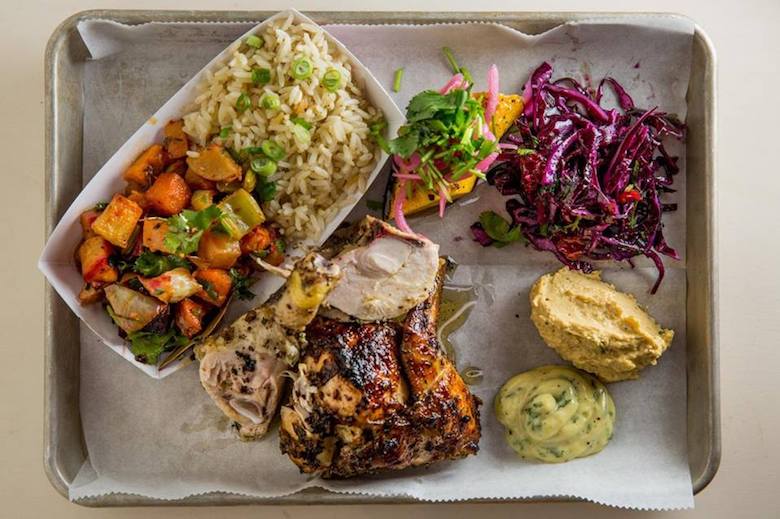
Over the past 15 months, a shop on the Prospect Lefferts Gardens stretch of Flatbush underwent major renovations. Each day, chef-owner Boris Ginet was at his new restaurant, Risbo, overseeing and personally executing every element of the build-out. Ginet is originally from Paris and moved to Brooklyn 22 years ago, having already trained and worked as a chef in a Michelin-starred restaurant for seven years. After opening Choice Market with his brother, he wanted to open a restaurant to serve as a love letter to the Brooklyn that so warmly welcomed him.
Prospect Lefferts Gardens is one of Brooklyn’s most rapidly gentrifying areas. During the time Risbo was in its incubation stage, a nearby Crown Heights bar was widely criticized for it’s racially insensitive press release and glamorization of gang violence. This community is also undergoing massive change at the hands of people building businesses geared toward a steadily incoming population that is whiter, wealthier and younger.
Chimene Jackson, strategist and social media manager, built the business plan with Ginet from the ground up. Rather than forming a firm idea of how to bring something new and different, they began with demographic research to ensure they were being community and culturally responsive. “I believe that a business is a dialogue,” Jackson said. “There’s a conversation that a neighborhood is already having, and when you build a business in a neighborhood, you’re joining that dialogue. The first thing you have to do is sit down and hear what’s already being said. Then you decide if you can join it.”
Ginet was aware of his place in this conversation as a white man opening a restaurant on Flatbush Avenue and has worked tirelessly to create a space that is of and for the community, rather than one that shuts anyone out. He knows that there are both subtle and explicit ways a restaurant announces who it’s “for,” and this one had to be for everyone.

Plenty was said to them in those 15 months. With the doors always open and music often playing, neighbors stopped in to see what was happening. “Will I be able to eat here?” was explicitly asked of both Jackson and Ginet. In response, they gave tours. They listened to concerns and feedback. “We want to open for the existing community,” Ginet said, and they repeated this desire to everyone who asked. But first, they listened…and listened. They offered tastes. They accepted feedback.
As a result of conversations they had, there were a few concrete decisions made to ensure that they were for and of the existing community. The price point is friendly. Ginet endeavors to hire locals. Although hospitality turnover is high, he wants a space where staff want to bring their friends. A true leader by example, on any given night multiple friends of Ginet’s come in and kiss him hello, order and tuck in for the night.
The food draws from French, North African and West Indian culinary traditions, but mostly feels like extraordinarily well-executed dinner party fare. The autobiographical menu honors cuisines he’s experienced over the course of his decades of culinary life and has ended up being culturally responsive seemingly by accident.
Why open here when we know that restaurants like his will likely raise rents and attract more of the kinds of people already gentrifying neighborhoods? “A lot of people open here because it’s cheap and cool, but they don’t know the community,” he said. “It isn’t their home.”



